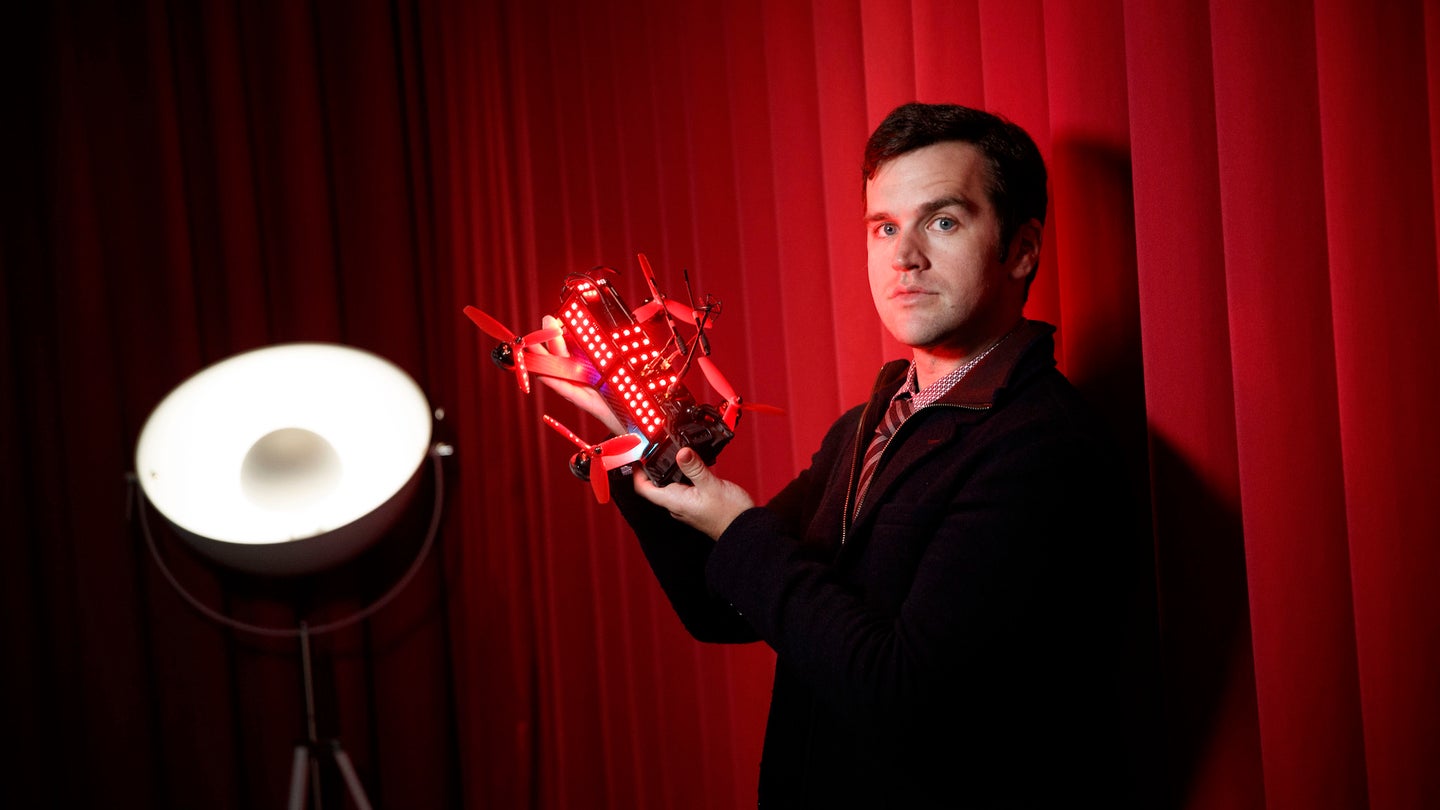The Drone Racing League Expands Into France With a Race in Nice and a New Media Partner
Drone Racing League founder and CEO Nicholas Horbaczewski talks new partners, new territory, and how the DRL is pioneering a new form of eSport.

The Drone Racing League (DRL) has just extended its partnership with DRL World Championship title-sponsor Allianz to five years, acquired a new media distribution partner with France’s Groupe AB, and is kicking off this year’s DRL World Championship season with a race at the Allianz Riviera Stadium in Nice, France.
Nicholas Horbaczweski founded the Drone Racing League in 2015. The last three years have shown that arguable gambles pay off in spades, for both the CEO and the eSport itself. With media distribution in over 75 countries through broadcasters like ESPN, ProSieben, and Disney XD, drone racing has been elevated from an underground hobbyist activity in parking lots across the country to an authentic eSport with celebrated events all over the world. This modern eSport institution has become an entertainment, eSport, and video gaming force to reckon with. Let’s take a look at what to expect from the DRL this year, its plans for the future, and hear from the founder and CEO himself.
According to the press release, the event in Nice on June 16 will mark the first professional drone race in France, with Groupe AB serving as the DRL’s new broadcast partner in the region. Longterm partner Allianz’s five-year extension makes sense, as it was actually the brand itself who approached the DRL in 2016, and not the other way around, and renewed its two-year deal before the first had even concluded.
The race in France, which will join Munich as a race venue for the 2018 DRL Allianz World Championship season, will have professional drone racers compete in three-dimensional courses through first-person view headsets for a chance to make it to the season finale in Saudi Arabia in September.
“We’re incredibly excited to extend our partnership with Allianz, who has a proud history of supporting innovative sports and auto racing, and to expand the reach of pro drone racing in collaboration with Groupe AB, the predominant racing media company in France,” said Horbaczewski in the press release. “We look forward to kicking off our presence in France with the first professional drone race at the Allianz Riviera, home to the most competitive football matches in the country.”
As for the founder and CEO himself, Horbaczewski is amused and appreciative of how his company has been received by audiences all over the globe. “What’s nice for us is I don’t think we’re forced to define where we fit exactly in the ecosystem,” he told The Drive. “I remember back in 2015 when I was first working at DRL, I’d meet with people from traditional sports and media and they’d try to convince me that eSports weren’t sports, and the reality is the audience voted with their feet, voted with their eyeballs, and it really made eSports massive.”
“People have been scrounging around trying to find a term for it. I’ve heard the term 'vSports' meaning 'virtual sports,' I’ve heard the term 'robotic sport,'” Horbaczewski said to The Drive. “I don’t think people have quite found a definition for the Drone Racing League yet. We like that, and so do our fans. So as long as we continue to exceed expectations and defy definition, I think we’ll be pretty happy with where we are.”
Horbaczweski’s introduction to drone racing might seem strange to newcomers, but it’s a strikingly familiar image to many of us. “The first time I ever saw it was in a field behind Home Depot in Long Island,” he told The Drive. “It was amateurs with homemade drones trying to figure out how to keep them flying. It was very rough around the edges, but I thought it was one of the coolest things I’d ever seen.” Fortunately for him, and the drone-racing audiences across the world, it inspired him to venture out on his own, and build something that could cross national, cultural, and demographic boundaries.
“What’s cool about it is similar to the way that it has a global appeal, it has an incredibly broad demographic appeal,” he explained. “Just look at our TV distribution. We are on Disney XD, which primarily caters to families and very young teens. We’re also on ESPN, which caters to 35 to 60-year-old men across the U.S., and we have success on both those channels…I think that’s just fantastic, we love that. We know it’s a sport, it is acceptable to people of any age, gender, background. It’s a level playing field for anyone to compete, and it also resonates with people.”
Perhaps most telling and infectiously exciting about the league’s history, its rapid evolution, and the audience that comprises it is Horbaczewski’s perspective on what drives it forward. There’s a genuine enthusiasm for all the elements involved, from the video gaming aspect to the motorized racing appeal to the competition of sports. The DRL is what its fans make it, as opposed to an entity forcibly acquiring an audience.
“I think that fans define what we are,” Horbaczewski concluded. “One of the things they like about us is that we sit on this blurry line between the digital and the real. We have a lot of elements of eSports, in the fact that it’s played with a controller, the pilots are remote to the actual craft they’re flying, but it’s also very real. If you’re at an event in London or in Munich, you will see real drones flying through a real building at 80 miles per hour, and then you can go to our simulator and fly a digital replica of that exact same course. You can sort of seamlessly move between digital and real, and in that way we are quite unique from an eSport.”
